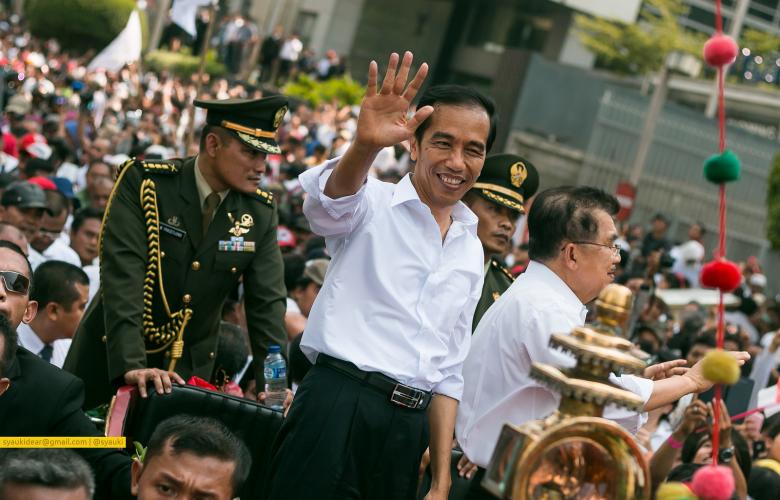Foreign investors looking to establish businesses in Indonesia are quick to complain that it's not an easy road to travel, despite initiatives from the Jokowi administration to streamline the process.
There have been a number of reasons for this, but according to Detik Finance, it's the overly complicated licensing process that tops the list, despite the introduction of the Online Single Submission service (OSS).
OSS was introduced in June last year to cut lengthy bureaucratic procedures and centralize and simplify business registration and licensing systems across the country. Indonesia's Capital Investment Coordinating Board (BKPM) is now responsible for OSS in further attempts to make processes easier.
But is this working and is it enough?
In a recent address at the inauguration of the 2019 National Development Planning Deliberation (Musrenbangnas planning forum) and RKP 2020 at the Shangri-La Hotel, South Jakarta, President Jokowi highlighted the need to cut bureaucratic red-tape.
The last five-years have been disappointing in terms of direct foreign investment, something Jokowi suggested was reflected by the current account and national trade balance still being in deficit. And the way to address this is to resolve investment and exports.
Trading Economics recently reported that direct foreign investment in Indonesia, excluding investment in banking and the oil and gas sectors, went down 0.9 percent year-on-year to IDR 107.9 trillion, or USD 7.2 billion, in the first quarter of 2019, compared to a 11.6 percent fall in the previous period.
Investing in alternative energy
One area that is open and ready for direct foreign investment, has been and still is, power - particularly alternative energy sources. A nationwide attack on pollution (especially single use plastics) has led to greater awareness for cleaner power and less reliance on fossil fuels and is following a global trend that is leaning towards greater environmental awareness.
Gapura Bali has been reporting for the last 18-months on initiatives ranging from wave power plants with the Wello Penguin Wave Energy Park just off the coast of Nusa Penida to projects that turn trash into energy in places like Klungkung in East Bali.
The administration sees significant opportunities in the areas of developing geo-thermal, solar, wave and wind power but realizes it needs foreign investment to drive this forward.
Too many licenses means fewer investors
Unfortunately, according to President Jokowi, foreign businesses are not keen to invest in Indonesia's power sector. Prior to a presidential directive calling for a simpler licensing process, a foreign investor would need to secure over 250 licenses; a process that could take as long as 3-years to complete.
After all relevant ministries and agencies were instructed to make the process easier, the number dropped to 58 licenses. But this is still too high for Jokowi, who told local news wires, that the number needed to be reduced even further, suggesting just 5 licenses were necessary.
On a similar theme, President Jokowi also addressed the XXIII Congress of the Indonesian Notary Association (INI), at the Bogor Presidential Palace in West Java recently with a similar message to simplify procedures to attract more investors.
Ease of Doing Business
A recent report by Indonesia Access, suggested there was still reluctance from foreign investors to engage with Indonesia's overly complicated systems, which many still tie into the country's reputation for corruption.
According to the President, State-Owned Enterprises (BUMN) in other countries and private investors from abroad have shown strong desires to invest in Indonesia, but the investment permit application process is still complicated and “complicated procedures mean it takes a long time, and investors have to pay high costs."
Terje Nilsen from Harcourts Seven Stones, has been vocal on the subject. "INI has been given directives on a range of procedures, including those related to Real Estate, but for whatever reasons, these are not being correctly or consistently implemented," he told WILLIAMS MEDIA. "Things have to change and procedures must be followed, for Indonesia to be a strong force in the region and to become one of the world's leading economies. Even though Indonesia ranks at #72 from #120 in the Ease of Doing Business (EoDB), we could be doing a lot better." he says.
Sources: Detik Finance, Today Online, Sekretariat Kabinet Republik Indonesia, Trading Economics, Bloomberg, Gapura Bali, Bappenas
Similar to this:
Are investors waiting for April's elections?
Industry 4.0 and Indonesia's Economic Potential
A growing trend in Bali's property space





